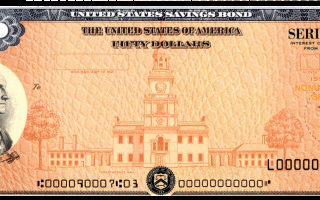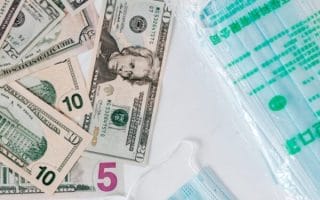
Buying gift cards to save up for a trip/big expense and then needing the money
Some people save for vacations or other big purchases by buying gift cards for the restaurants, merchants, gas stations, or other expenses that they’ll incur on vacation. They think that if the money is tied up in cards, they won’t be tempted to spend it on other things. And that’s exactly the problem with this strategy. The money is tied up on the cards. If something happens and you can’t go on the trip or buy the big purchase and you need the money immediately to pay for emergency expenses, you’re out of luck. Most stores won’t allow you to return gift cards for cash. You think you’re dealing with your discipline problem, but you’re really giving up control of your cash.
Buying a coupon that wasn’t intended for you, only to have that coupon rejected at the register
Recently, a Home Depot coupon for $50 off of a $100 purchase hit the Internet. The coupon was intended for a small group of people but instead it went viral, with people printing off hundreds of the things and then selling them on eBay. While Home Depot honored some of these, there were also many reports of stores refusing to honor them. People who bought them off of eBay took a big risk, and it didn’t pay off for more than a few of them. This happens frequently with high dollar coupons, particularly when the retailer doesn’t put control mechanisms on them, such as linking them to an account or unique bar code. You may think you’re saving money, but you’re taking a risk that you will pay for a coupon that you won’t be allowed to use.
Hiding cash or savings bonds in the house and then having a fire, flood, or robbery
This one’s self-explanatory. Some people are so afraid of banks that they hide their cash and savings bonds in their house. That’s all well and good until the house burns down, gets robbed, or floods. Cash can’t be replaced and savings bonds require a painful process (it’s the government, after all) to get replaced. An insured bank is safer.
Adjusting your withholdings at work to get a huge tax refund
Many people intentionally adjust their withholdings at work so they will get a big tax refund every year. The thinking is that this acts as a “forced savings” program. Then, when that big check comes they can pay for a trip or home improvement project. The problem is that this gives control of your money to Uncle Sam throughout the year. If you find yourself in a situation where that extra money would come in handy each check, you have to re-adjust your withholdings and wait for it to take effect. You’re also out the amount you’ve overwithheld until that check comes in April. You’re better off just pocketing $50 – $100 per check in a hard-to-access bank account.
Buying a product with a big rebate and then not sending it in or doing so incorrectly
Rebates can be good, but if you’re relying on it to bring the product down to a price you can afford (i.e., you can’t really afford it unless the rebate comes through), you could be in trouble. Sometimes the problem is that you just forget to send everything in. Other times, the problem is that you didn’t follow all of the retailer’s rules and fine print and they denied you. If a company goes out of business before you get the check, you may never see the money. Even if you manage to overcome all of that, rebate checks can still get lost in the mail. If the rebate will be just “extra” savings for you, then it may be worth it. But if you really need that money, you may want to pass.
Keeping your checking account balance low intentionally and then incurring overdraft fees
Some people try to keep all of their money in savings accounts in order to keep earning interest. The keep their checking balance intentionally low, relying on timely transfers from the savings account to cover their purchases. The problem is that transfers can sometimes take longer than normal. You might forget to make the transfer. Or, your spouse might make a purchase and forget to tell you to move the money to cover it. When this happens, you’re going to get hit with overdraft fees from both your bank and the merchant. Keep enough in your checking account to cover your normal transactions. The amount you’ll lose in interest is nothing compared to the amount you’ll pay in fees.
A bank is still your best bet for saving money. If you think you have a discipline problem, put your savings in an online bank (or a bank that’s far from your house and work) that doesn’t have a debit card or check writing privileges attached to it. That way, you’ll have to transfer money out of the account to spend it, a process which can take a few days. While you may have to wait a couple of days to get that money, in an emergency that’s far better than not being able to get to it all.
If you intend to save with a rebate or coupons (particularly high dollar Internet coupons), make certain that you can comply with all of the rules, that you remember to use/send it in before it expires, and that the retailer hasn’t closed the deal down due to fraud. You may just be better off choosing a different product that doesn’t have the rebate, or searching for other ways to bring your cost down rather than relying on questionable coupons.
(Photo courtesy of Freidwall)

Jennifer Derrick is a freelance writer, novelist and children’s book author. When she’s not writing Jennifer enjoys running marathons, playing tennis, boardgames and reading pretty much everything she can get her hands on. You can learn more about Jennifer at: https://jenniferderrick.com/.






Comments